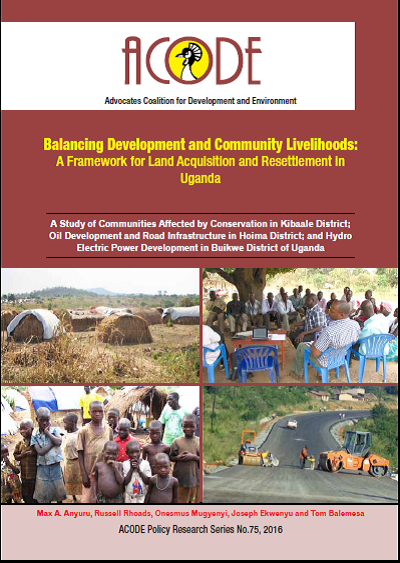Balancing Development and Community Livelihoods: A Framework for Land Acquisition and Resettlement in Uganda
Land acquisition for development projects by government, private investors and land speculators is a critical source of tensions and conflicts in many parts of Uganda. Following the discovery of commercially viable oil reserves in 2006, Uganda turned attention to extractives and oil development as a matter of national priority. Evidence of this assertion can be found in the recent 2016-17 national budget allocations, where the portion for oil development is substantial.








